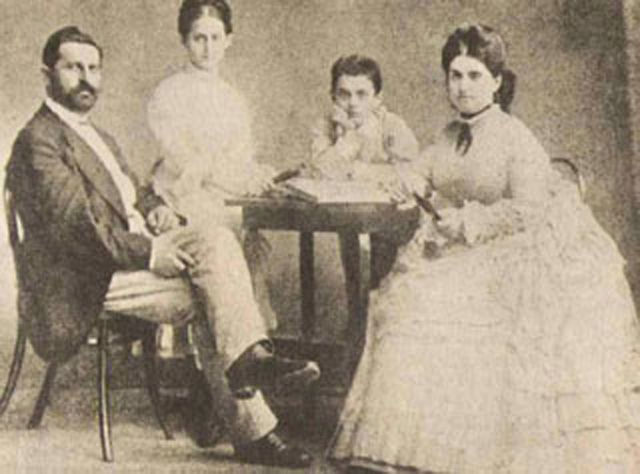The Zionist Congress was established in 1897 by Theodor Herzl as the supreme organ of the Zionist Organization (ZO) and its legislative authority. In 1960 the names were changed to World Zionist Congress and World Zionist Organization (WZO), respectively. The World Zionist Organization elects the officers and decides on the policies of the WZO and the Jewish Agency, including "determining the allocation of funds." The first Zionist Congress was held in Basel, Switzerland in 1897. Any Jew over age 18 who belongs to a Zionist association is eligible to vote, and the number of elected delegates to the Congress is 500. 38% of the delegates are allocated to Israel, 29% to the United States of America, and 33% to the remainder of the countries of the Diaspora. In addition there are about 100 delegates which are appointed by International Organizations affiliated with WZO.
The Second Zionist Congress, held in Basel, Switzerland (1898).
Participant card for the first Zionist congress in Basel, Jewish Museum of Switzerland.
Basel Street in Tel Aviv (c. 1939) named in honor of the first Congress of 1897
12th Zionist Congress, Carlsbad 1921
Theodor Herzl was an Austro-Hungarian Jewish journalist, lawyer, writer, playwright and political activist who was the father of modern political Zionism. Herzl formed the Zionist Organization and promoted Jewish immigration to Palestine in an effort to form a Jewish state. Due to his Zionist work, he is known in Hebrew as Chozeh HaMedinah, lit. 'Visionary of the State'. He is specifically mentioned in the Israeli Declaration of Independence and is officially referred to as "the spiritual father of the Jewish State".
Herzl in 1897
Herzl and his family, c. 1866–1873
Herzl as a child with his mother Janet and sister Pauline
Herzl (seated in the middle) with members of the Zionist Organization in Vienna, 1896








